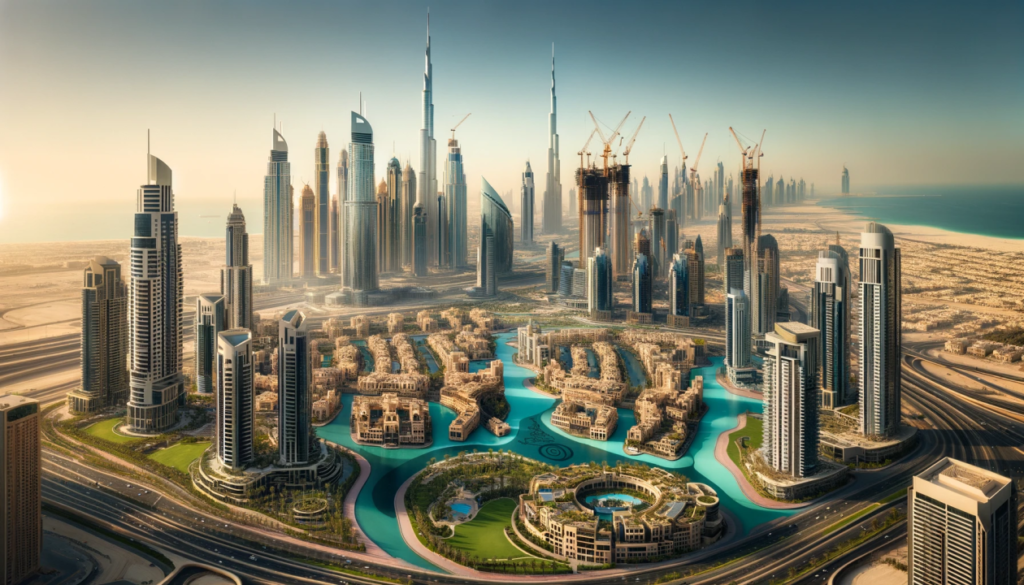
Market Overview
Dubai’s real estate market has always been a focal point of global attention due to its rapid development, luxury offerings, and strategic economic initiatives. The first quarter of 2024 has continued this trend, showcasing remarkable resilience and growth amidst global economic challenges. This article delves into the key highlights, trends, and future outlook of Dubai’s real estate market in Q1 2024.
Key Trends
High Demand for Luxury Properties:
The luxury segment has seen significant traction, with high-net-worth individuals (HNWIs) and foreign investors showing a keen interest in prime properties. Areas such as Downtown Dubai, Palm Jumeirah, and Emirates Hills witnessed substantial price appreciations. The demand for luxury villas and penthouses has particularly surged, driven by the preference for spacious living amid post-pandemic lifestyle changes.
Off-Plan Sales Surge:
Off-plan properties have gained considerable popularity, contributing to a large portion of the overall transactions. Developers have introduced attractive payment plans and innovative projects to entice buyers. The success of these off-plan projects is a testament to the confidence in Dubai’s long-term growth prospects.
Sustainability and Smart Living:
There has been a growing emphasis on sustainable and smart living solutions. Developers are increasingly integrating green building practices and smart home technologies to meet the rising demand for eco-friendly and technologically advanced homes. Projects like Dubai Sustainable City and new smart communities are setting benchmarks in this regard.
Rental Market Dynamics:
The rental market remained stable, with a slight increase in rental yields. Areas with affordable housing options, such as Jumeirah Village Circle (JVC) and Dubai South, saw higher occupancy rates. The demand for rental properties continues to be driven by the expatriate population, which constitutes a significant portion of Dubai’s workforce.
Government Initiatives and Economic Factors
The Dubai government has been proactive in implementing policies to bolster the real estate sector. Initiatives such as long-term visas for investors, retirement visas, and the introduction of fractional ownership have played a pivotal role in attracting foreign investment. Additionally, Dubai’s strategic focus on economic diversification, particularly in sectors like technology, finance, and tourism, has positively impacted the real estate market.
Challenges and Considerations
While the market outlook remains positive, certain challenges need to be addressed. The potential oversupply of properties, particularly in the mid to high-end segments, could lead to price stabilization or corrections. Developers and stakeholders need to balance supply and demand to maintain market equilibrium.
Future Outlook
The outlook for Dubai’s real estate market in 2024 remains optimistic. The city continues to be a global hub for business, tourism, and investment. Upcoming mega-events like Expo City Dubai and continued infrastructure developments, including new transportation networks and smart city initiatives, are expected to further boost the market.
Furthermore, with Dubai’s strategic vision of becoming a leading global city by 2030, the real estate sector is poised for sustained growth. Investors, both local and international, can expect promising opportunities as Dubai continues to innovate and adapt to global trends.
Conclusion
The first quarter of 2024 has reaffirmed Dubai’s position as a dynamic and resilient real estate market. With a strategic mix of luxury offerings, innovative projects, and supportive government policies, Dubai continues to attract investors and residents from around the world. As the year progresses, stakeholders in the real estate sector can look forward to a promising landscape filled with opportunities and growth potential.